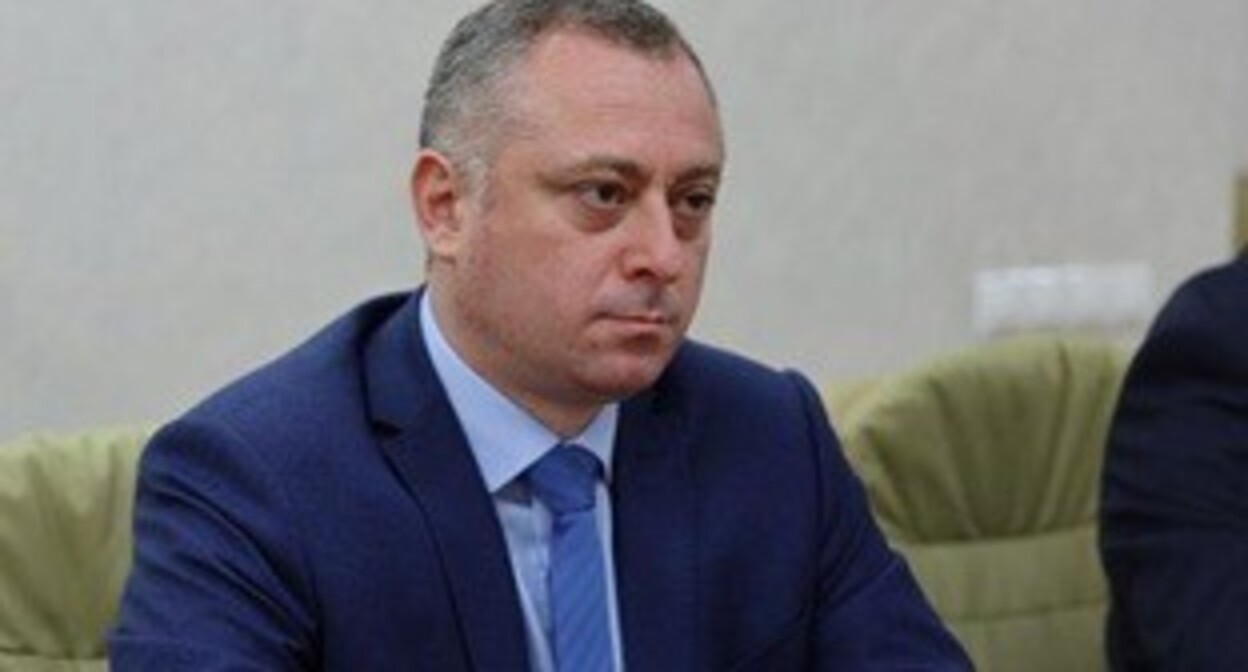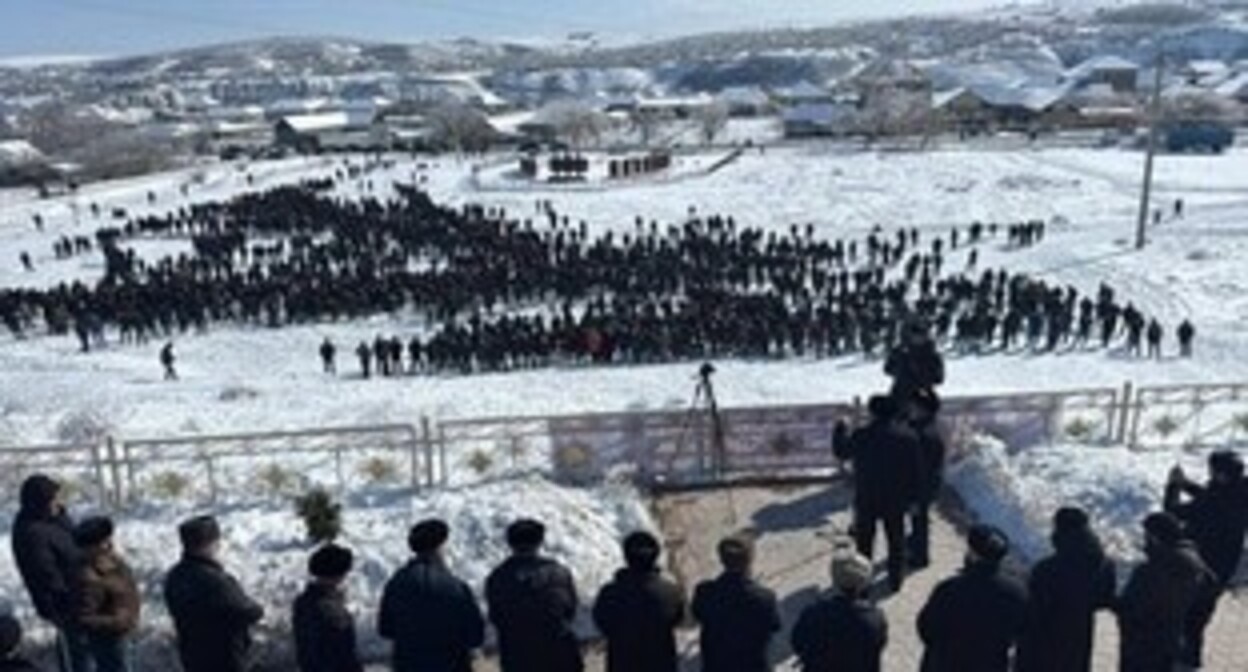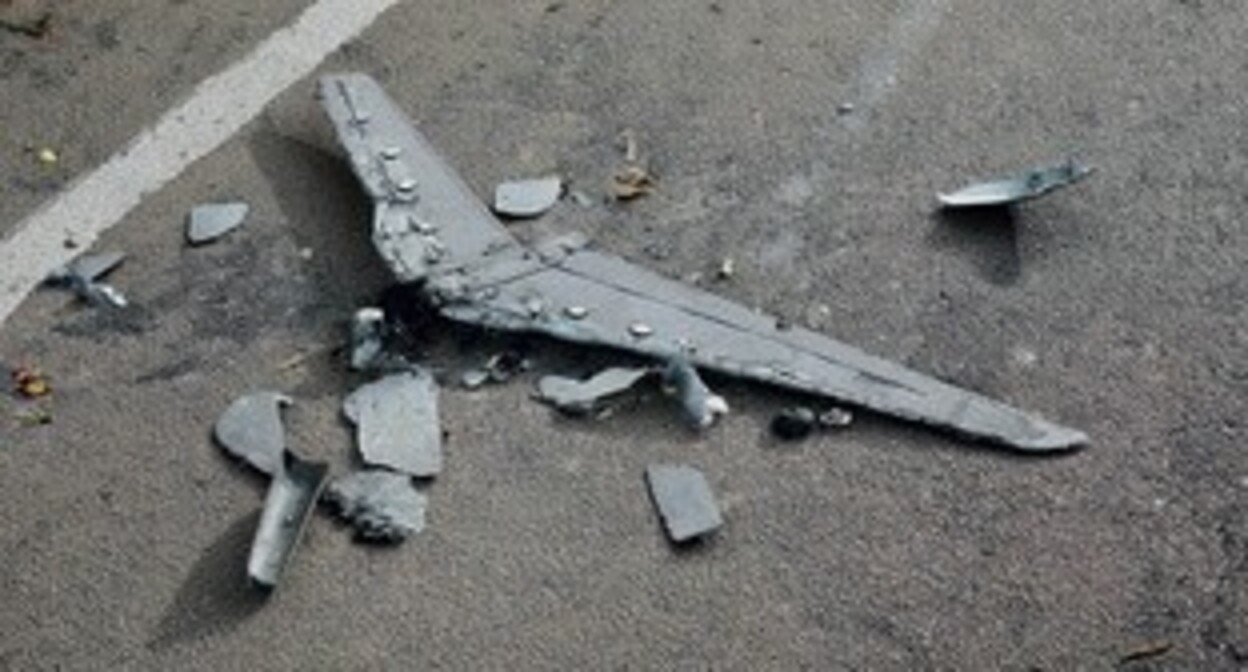Week in the Caucasus: review of main events of August 5-11, 2024
Five-Day War, twenty-five years since Basaev and Khattab’s invasion, drone attacks, persecution of pacifists and activists in Southern Russia, early parliamentary elections in Azerbaijan, and official data on the natives of Southern Russia who perished in Ukraine, – see the review of these and other events in the Caucasus during the week of August 5-11, 2024, prepared by the “Caucasian Knot”.
Five-Day War
Sixteen years after the Five-Day War, the pain of loss has not subsided, say relatives of perished journalists Alexander Klimchuk and Giga Chikhladze.
The Russian military operation “to force peace” later called the “Five-Day War” was carried out in Georgia, Abkhazia, and South Ossetia in the period from August 8 to 12, 2008. After the Five-Day War, Russia and some other countries recognized the independence of Abkhazia and South Ossetia. Georgia has since considered those territories occupied by Russia and has cut diplomatic relations with Russia.
Former Georgian President Mikhail Saakashvili is responsible for the start of the Georgian-Russian war of 2008, the Georgian Prime Minister claims. The Prime Minister has announced a “public trial” in a case against the “United National Movement” (UNM) Party. Russia is to withdraw its troops from the Georgian territory and stop violating the rights of the people living there, the Georgian Ministry of Foreign Affairs (MFA) and Ombudsman emphasize.
Russian Foreign Ministry spokesperson Maria Zakharova has declared there is a need to develop an agreement on the non-use of force between Georgia, Abkhazia, and South Ossetia within the framework of the Geneva discussions. The Russian Foreign Ministry spokesperson has blamed the “Saakashvili regime” for the start of military actions in August 2008.
Twenty-five years since Basaev and Khattab’s invasion
The day of August 7 marked a quarter century since the attack on Dagestan by the militants led by Shamil Basaev and Amir Khattab. A memorial rally and re-enactment of the events of 1999 took place in the Botlikh District. Even decades later, investigators report the detention of suspected participants of the militants’ attack on Dagestan. So, on November 2, 2022, law enforcers detained Eduard Taushev and Temirali Zarakaev, residents of the Stavropol Territory, who, according to the investigators’ version, participated in the militants’ attack.
Earlier, advocate Narine Airapetyan has claimed that criminal cases on participation in the gangs led by of Shamil Basaev and Amir Khattab look similar and are often falsified. The advocate notes that criminal cases are also being fabricated against the persons who are not guilty. “For example, one of my clients, who is serving his sentence, told me that he was being pressured to testify about the events of 1999 against people he did not even know,” the advocate said.
Drone attacks
The authorities of Krasnodar have introduced payments to families whose members were killed as a result of drone attacks, as the authorities are trying to negotiate with the population in such a way. At the same time, instead of payments, the authorities should increase the level of security, residents of the Krasnodar Territory suggest. The payment of 2 million roubles for the death of a person as a result of a drone attack can be received by a spouse of the deceased person, his or her parents and children. Other relatives are not entitled to the measure of social support described above.
On the night of August 7, two drones were discovered and shot down in the Rostov Region, Governor Vasily Golubev reported in his Telegram channel. According to the preliminary information, no one was hurt.
Since the start of the Russia’s special military operation (SMO) in Ukraine, drones have regularly attacked the Rostov Region. For example, on August 3, after a drone attack, warehouses in the Kamensky and Morozovsky Districts caught fire. Residential buildings were damaged in Morozovsk.
Persecution of pacifists and activists in Southern Russia
According to the investigators’ version, Boris Subbotin, a resident of the Kavkazsky District, posted a pacifist comment on the “Odnoklassniki” social network and reposted a video ridiculing the Russian militaries. The Kavkazsky District Court fined Boris Subbotin 30,000 roubles.
A fine of 20,000 roubles for discrediting the Russian Armed Forces was imposed on Victoria Radchenko, a resident of Novocherkassk in the Rostov Region. The woman explained that she had fell victim to a fraudster and acted after receiving threats from him. Victoria Radchenko wrote an inscription on the facade of the administration building, thereby carrying out public actions aimed at discrediting the use of the Russian Armed Forces, the court reports on its official website.
In the Oktyabrsky District of the Rostov Region, a court recognized that a video posted on a social network by a local resident with statements about the special military operation (SMO) in Ukraine discredited the Russian Armed Forces. The “Don 24” TV Company reported with reference to the courts’ united press service that the above-mentioned citizen was Yevgeny Boyko, and he was fined 50,000 roubles.
On August 6, the Armavir City Court fined Marina Melikhova 30,000 roubles, finding her guilty of discrediting the Russian Armed Forces by writing a pacifist verse addressed to her grandfather, who perished during World War II. Marina Melikhova and her advocate Maria Spasibukhova lodged a complaint with the regional court, stating that they considered the ruling unlawful and issued in violation of the Russian legislation.
Law enforcers drew up a report on discrediting the Russian Armed Forces against Miroslav Genik, a resident of Kalmykia.
Early parliamentary elections in Azerbaijan
On June 20, the ruling “Yeni Azerbajan” (New Azerbaijan) Party announced the need to hold early parliamentary elections before the start of the COP-29 international UN Climate Change Conference. On June 28, President Ilham Aliev dissolved the country’s parliament and scheduled early elections for September 1. On August 1, the OSCE/ODIHR observation mission announced the start of its activities within the framework of the parliamentary elections in Azerbaijan.
On July 4, it became known that the opposition “Musavat” and “Republican Alternative” Parties would take part in the elections to the Azerbaijan’s parliament (Milli Majlis). At the same time, the opposition “Popular Front Party of Azerbaijan” (PFPA) and the “National Council of Democratic Forces” (NCDF) decided to boycott the parliamentary elections. The election campaigning is underway in the country from August 9 to 31. Human rights defenders claim that for meetings with voters, candidates have been offered locations on the outskirts and in other places where campaigning is not effective enough.
The central election headquarters of the “Musavat” Party has stated that early parliamentary elections were scheduled “in the absence of a democratic pre-election environment in the country, legislation for holding free and fair elections, and equal opportunities for political competition.” In particular, freedom of assembly, speech, and expression were not ensured in the country, but arrests of politicians, journalists, and activists continued, and political prisoners were not released, the “Musavat” Party in its report.
Official data on natives of Southern Russia perished in Ukraine
By August 11, the authorities and the law enforcement bodies reported about at least 4669 residents of Southern Russia perished in Ukraine, including 2252 residents of the North-Caucasian Federal District (NCFD) and 2417 residents of the Southern Federal District (SFD).
In Dagestan, the authorities reported about 978 local residents perished in Ukraine, in the Volgograd Region – 877, in the Rostov Region – 523, in the Krasnodar Territory – 511, in the Stavropol Territory – 461, in the Astrakhan Region – 359, in North Ossetia – 300, in Chechnya – 202, in Kabardino-Balkaria – 158, in Kalmykia – 89, in Karachay-Cherkessia – 78, in Ingushetia – 75, and in Adygea – 58.
This article was originally published on the Russian page of 24/7 Internet agency ‘Caucasian Knot’ on August 12, 2024 at 08:52 am MSK. To access the full text of the article, click here.








![Tumso Abdurakhmanov. Screenshot from video posted by Abu-Saddam Shishani [LIVE] http://www.youtube.com/watch?v=mIR3s7AB0Uw Tumso Abdurakhmanov. Screenshot from video posted by Abu-Saddam Shishani [LIVE] http://www.youtube.com/watch?v=mIR3s7AB0Uw](/system/uploads/article_image/image/0001/18460/main_image_Tumso.jpg)